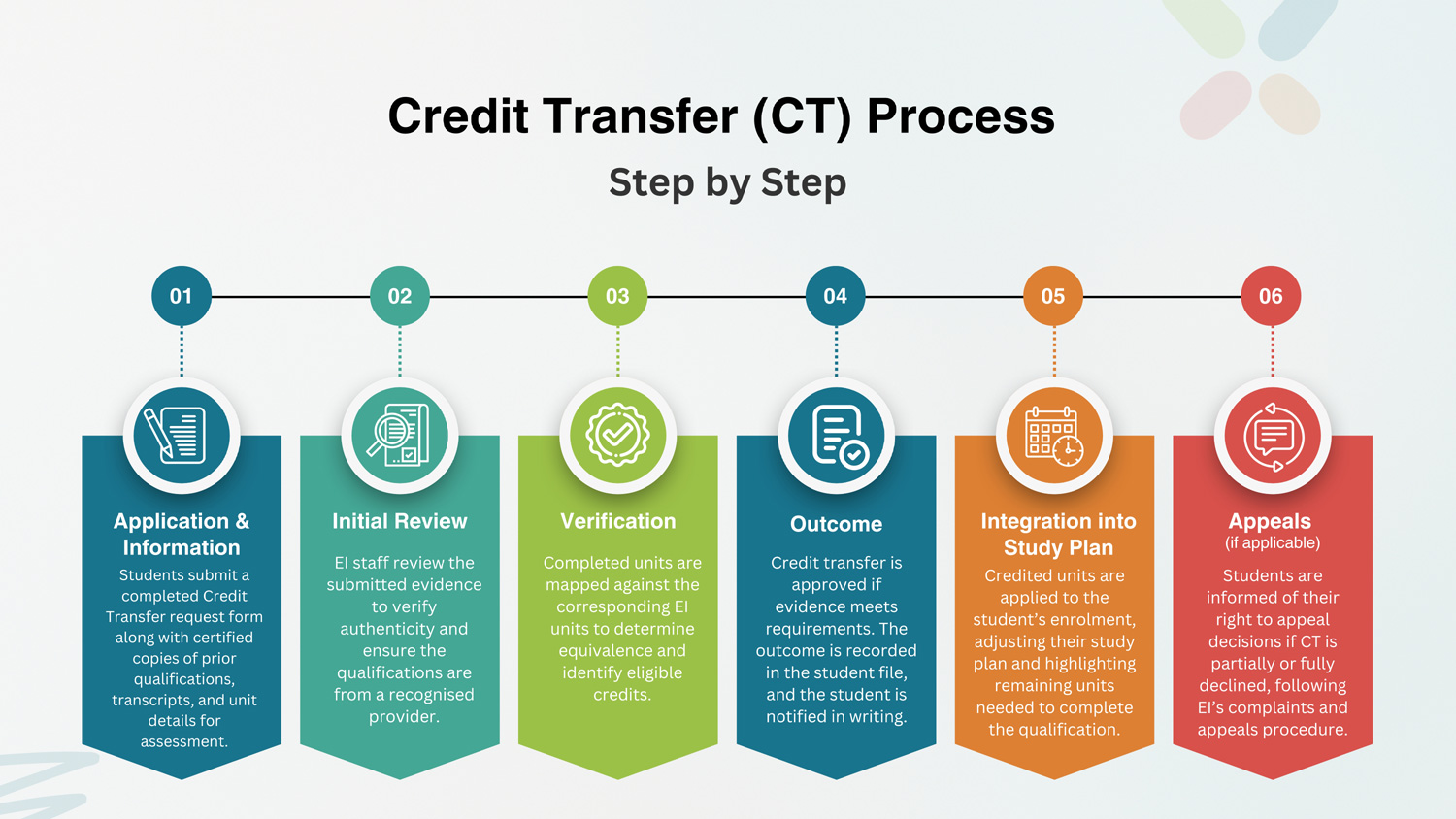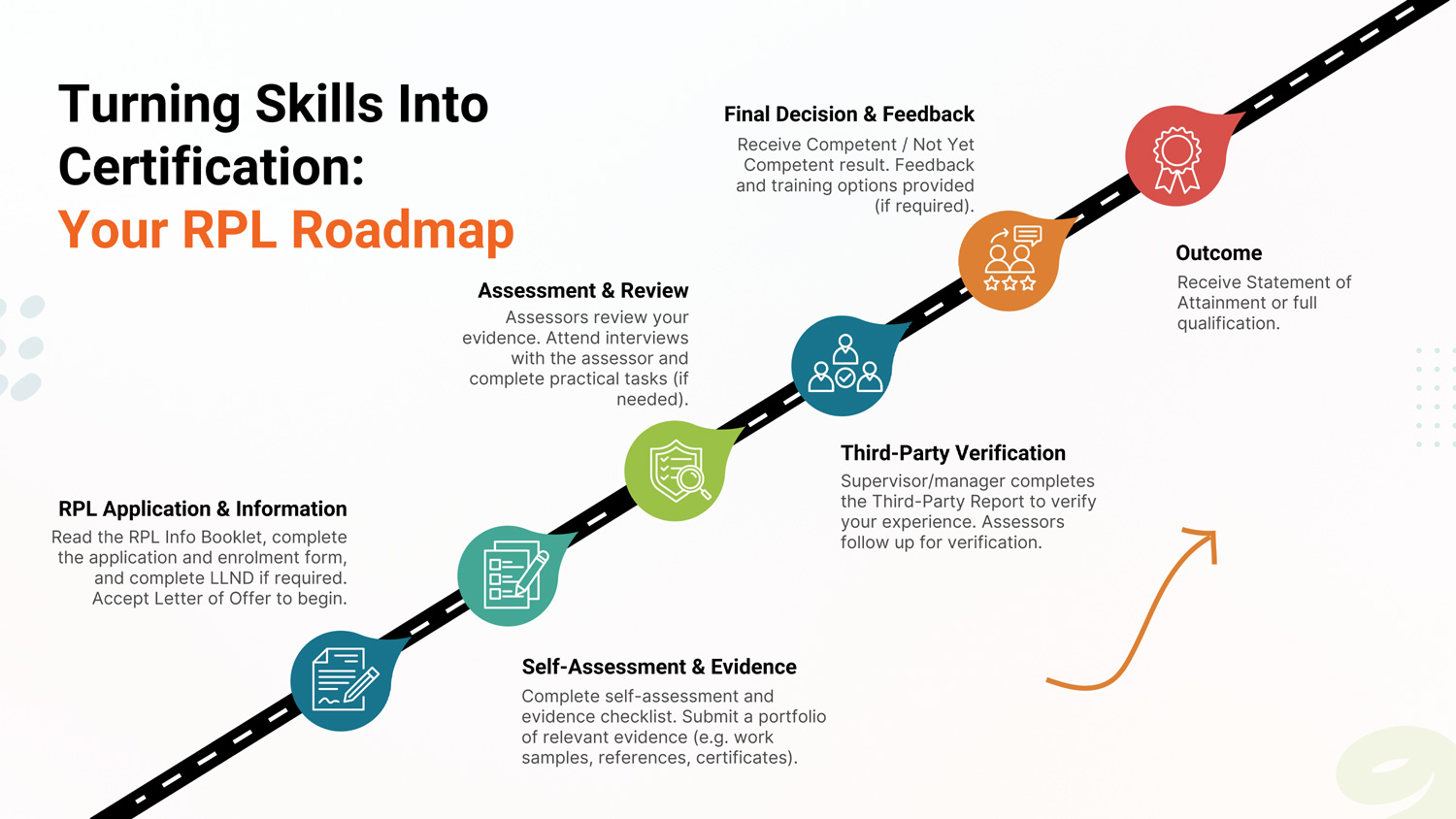Credit Transfer (CT)
At Everest Institute, we recognise qualifications and statements of attainment issued by other education providers in Australia. This process is called Credit Transfer (CT). Credit Transfer allows you to receive recognition for units you have already successfully completed, so you don’t need to repeat the same study.
What is a credit transfer?
Credit transfer is recognition that you’ve previously completed a unit of your course through VET or higher education. To receive a credit transfer for a unit you must provide formal evidence that you’ve previously completed the unit or a unit which matches in content and outcome. Formal evidence can be a qualification certificate or transcript, statement of attainment or your USI transcript. When credit is recognised, you don’t need to repeat training or assessment for that unit.
Who Can Apply for Credit Transfer?
You may apply if you have completed:
- Units of competency from another provider with the same unit code and name.
- Units deemed equivalent on the National Training Register (training.gov.au).
- A full qualification or a Statement of Attainment with matching units.
Important Information for Students
- Credit Transfer is not the same as RPL (Recognition of Prior Learning). CT only applies to units you have already completed with another provider.
- You must provide certified copies of your qualifications and transcripts.
- Credit Transfer may reduce the duration of your course, and in some cases, this will be reported to PRISMS if you are on a student visa.
- No additional fees are charged for Credit Transfer applications.




